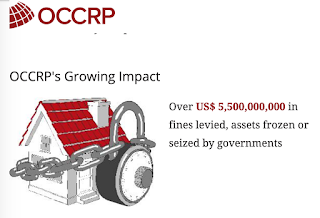 |
| Cees van Riel. Photo from Reputation Institute |
Leaders must speak up
Companies whose leaders and employees specifically say what they stand for, and back that up with their behavior, emerge as leaders in their industry by all sorts of tangible indicators, including but not limited to financial performance.
"You have to say yourself what you stand for," Cees said. "If you don't, no one will believe you."
Cees's observations made me realize that news media have done a terrible job at informing the public about the importance of what they do, namely investigating deeply to discover the truth and informing the public in a democratic society.
News media organizations should be taking this insight to heart, but often they view it as unseemly self-promotion. They assume everyone views them as an authority, as the purveyors of truth and guardians of the public interest. And, of course, they're wrong. Almost everywhere in the world, news media have low credibility. (Trust explored in more depth here.)




